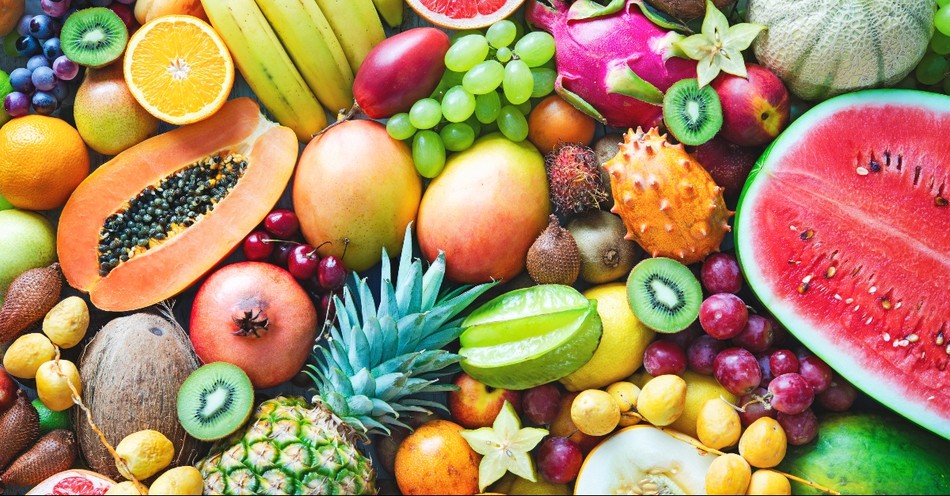To begin a series about the fruit of the Spirit, we must first address what and how the Bible defines “fruit.” Fruit is a product of a living entity, providing a way to reproduce and propagate.
That living entity bears fruit naturally, meaning it grows like a normal occurrence, as part of the life cycle of that entity. All of life starts with a single seed.
We can spread seeds in quantity, but it is all the same type of seed. We can spread God’s Word in many ways, but it is still only one type of seed — God’s Word — to present without misrepresenting it, twisting it, or diluting the message.
John 12:24 states that kernels of wheat must fall to the ground so its seed can be planted and grow. There are multiple seeds on wheat to grow more wheat, not multiple seeds of multiple types of fruit.
So, with the single seed that God plants within us (1 John 3:9), we are to die to self, crucify our sinful nature, and allow the Spirit to have control, to cultivate and grow His fruit in us so we can replicate our seed within others.
John 12:25 states that if we do not allow God to control our lives and put to death our sinful nature, our fruit will not mature and will not be ready to replicate.
Allowing the Spirit to fill us and control us while putting our mortal bodies to death allows the seed to grow and produce “much (of the same) fruit.”
What is the seed we are to sow? The Word — Jesus. What is the fruit? The fruit of the Spirit, allowing the Holy Spirit to grow, mold, and shape us into the image of Jesus! The fruit of the Spirit, then, is “Jesus fruit” — that which makes us more into the likeness of Jesus Himself.
A single seed is planted by God the Father within every person who believes in the Lord Jesus Christ with the purpose of growing it into the image of Jesus (Romans 8:29), through the ministry of the Holy Spirit.
The Spirit’s function is to point us to and testify Jesus, keeping us and sealing us (2 Corinthians 1:22, 5:5; Ephesians 1:13-14, 4:30) permanently until the Day of Redemption (Jesus’ return) when we are then made complete, perfect, and forever in Jesus’ likeness for eternity.
Ways to Describe Fruit
Can you identify fruit from its characteristics?
Juicy, round, sweet, squeezed for juice, edible skin, grows on a vine, used in Communion — a grape.
Oblong, slightly sweet, peeled skin, pasty when mashed, ripens yellow, grows on trees — a banana
You didn’t see, smell, or taste these fruits, but knowing each fruit’s characteristics, you could identify them.
The number of seeds, meat, skin, color, texture, and shape — each characteristic provides identifiers to match the right fruit with its characteristics. Some fruit contains multiple seeds, some single seeds, but the seed from each fruit produces more of the same fruit.
Each seed contains the DNA of what it is to become, and the fruit contains more seeds to produce more fruit. God’s seed — His DNA — is planted within us. It is a single seed that produces one fruit, Jesus.
In Galatians 5:22-23, the planted seed is one singular fruit, with characteristics that describe Jesus and attributes to be displayed by the believer (The fruit of the Spirit is…).
Just like we could describe a grape or banana above by its many characteristics, we can describe Jesus — a mature, perfect, complete representation in character in the fruit of the Spirit.
What Is the Biblical Context?
God’s planted seed will bear the fruit of the Spirit (Jesus). Like an apple is an outward sign of being the fruit of an apple tree with more seeds inside to start the process again, the fruit of the Spirit will grow “Jesus fruit” that will make us inwardly more like Jesus and outwardly display more of Jesus.
The fruit we develop is from the Spirit, not ourselves. As we grow in Christ, the Spirit grows and replicates the fruit with the same characteristics (DNA) to produce the same result — Jesus. Each characteristic flows with, from, and through the others in a unified way.
If we struggle with one, we are likely struggling with other characteristics. For example, 1 Corinthians 13 tells us love is gentle, kind, patient, etc.
If you are struggling with patience, is “love” really a “mature” characteristic in your life? No, because love is (produces, has a characteristic of being) patient, as also described in the fruit of the Spirit characteristics.
An apple looks like the fruit of an apple tree. Jesus is what you get when the fruit of the Spirit is in its full maturity. The fruit grows when we allow the Spirit to work in our lives.
1 Thessalonians 5:19 warns us that we can “quench” the Spirit. Quench means to douse, put out, eliminate, or extinguish something that is very hot (Google dictionary).
At Pentecost, people saw tongues of fire. The Holy Spirit is a fire within us. We are to fuel the holy fire, not quench it, not suppress it, not throw water on it with sinful actions or by Satan’s attacks (Galatians 6:11,13,16).
We can put the fire of God out or diminish it to where it no longer provides heat, extinguishing the glow.
We also have “the shield of faith” (Ephesians 6:16) to quench (same word) the fiery darts of Satan. Satan is a real danger, and we cannot allow his fiery darts to burn us. The shield of faith works when we let the Spirit control us so Satan’s darts cannot harm us.
Ephesians 4:30 tells us not to grieve the Holy Spirit. As the Spirit has and demonstrates emotion, we can cause sadness to the Spirit of God when acting out deliberate sin.
What does it mean to grieve the Spirit? (Ephesians 4:17-5:5). By living our lives like the pagans, we choose to not allow the Spirit to be in control and develop this fruit that makes us more into the image of Jesus.
We grieve the Spirit because His mission is to point us toward Jesus and make us more like Him.
Keeping this “fruit of the Spirit” in context, Galatians 5:19 warns us of the works of the flesh; we must put the flesh with its passions and desires to death (Galatians 5:24) so we will not grieve the Spirit, quench the Spirit, and stagnate the growth of the fruit of the Spirit — stopping the work to make us in Jesus’ image.
Galatians 5:19-6:10 in its context of inwardly developing and outwardly displaying the fruit of the Spirit is clear. Don’t be conceited, don’t provoke one another to anger or to sin, and don’t envy or be jealous of each other.
If one is caught (snared) in sin and fallen — we can restore that person in love (one characteristic of the fruit), without judgment (kindness and goodness), not mock them (gentleness), not think we are better than them (self-control), and we will reap what we sow.
Don’t be weary in well-doing — we will reap in due season the type of seed that has been planted and we allow to flourish. We must allow the Spirit to be in control.
Allowing the Spirit to control us lets Him shape us and mold us into being more like Jesus (Romans 8:29) and grow fruit that inwardly prepares us and outwardly demonstrates to others that we are becoming more like Jesus.
What Does This Mean?
The fruit of the Spirit is an integral part of a believer’s life and spiritual growth. We cannot be the people we are to be (1 Peter 2:9): holy, set apart, uniquely chosen for a special purpose, without the ministry of the Holy Spirit or His fruit growing in us.
Just like physical fruit, not every characteristic grows at the same pace. Though there is much activity taking place on the inside, it is not all visible to us or others nor does it develop at the same rate.
The Holy Spirit works inside of us, developing traits that are not yet visible to others. But, once the fruit is mature, ripe, and ready, it looks like that fruit and is that fruit. When the fruit matures, others begin to see Jesus in us with His traits that have grown in us.
In other words, each doctrine, each godly principle, each commandment (love God and love others as ourselves), each spiritual gift that is to be used for ministry and perfecting the saints — all work in harmony together for the purpose of reconciling all men back to God.
Developing and maturing the fruit of the Spirit gives us the authority, the power, and the victory of becoming more like Jesus to do the work that the Father is sending us to do.
By their fruit, you shall know them and by our fruit, they shall know us. Are we growing characteristics that make us more like Jesus?
For further reading:
What Are the Fruits of the Spirit?
How Is Spiritual Growth Like Gardening?
Disciples of Jesus Are Known by Their Fruit
Photo Credit: ©iStock/Getty Images Plus/AlexRaths





